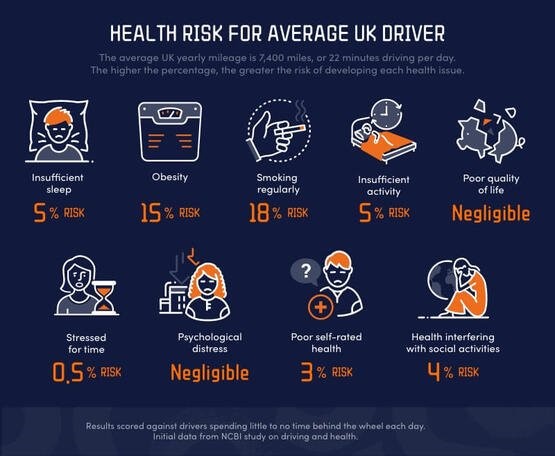Wednesday, 16. December 2020
Fleet decision-makers and the leasing industry is bracing itself for a price hike on new company car and van orders in the event of a ‘no deal’ Brexit.
However, in a note from BMW, seen by Fleet News, the German manufacturer has announced a customs duty related increase of more than £3,000 on the recommended retail pricing (RRP) of the BMW i3, irrespective of whether there is a free trade deal or not.
BMW had announced at the beginning of October that BMW i3 models, along with the majority of other BMW models, would be subject to an “economic increase” in the recommended retail price rise from January 1, 2021.
Due to changes in the ‘Product Specific Rules of Origin’ legislation, it says that the maximum permitted content of non-EU and non-UK materials means these models will be subject to additional tariffs after the end of the Brexit transition period.
This will be the case, it adds, “whether or not there is a free trade agreement with the EU”, which means a further increase in the RRP of BMW i3 models is needed.
The current RRP for a BMW i3 (ZI3I), valid until December 31, is £35,120 – the previously announced RRP, to be effective from January 1, was £35,670. However, BMW says that the new RRP from January will now be £38,785 – an increase of more than £3,600.
Similarly, the current RRP for a BMW i3 (ZI3J), valid until December 31, is £37,650 – the previously announced RRP, to be effective from January 1, was £38,200. However, BMW says that the new RRP from January will now be £41,315 – again an increase of more than £3,600.
It says that for Direct Sales Agency Agreement vehicles, orders registered on or before December 31 will be charged the pricing valid on the date of order.
Meanwhile orders registered on or after January 1 will be charged as follows:
Vehicles which arrive in the UK on or before December 31 and which are marked sold on or before December 31 will be charged the pricing valid on the date of order as the vehicle will not incur additional import charges. Vehicles must be registered by April 30, 2021, to benefit from this pricing.
Vehicles which arrive in the UK on or after January 1, regardless of the date of order, or which are marked sold on or after January 1, will be charged at the new price, incorporating the customs duty increase and are not price protected.
BMW’s price hike comes after Renault issued its own price warning ahead of a free trade agreement not being reached.
In a letter from Renault’s fleet director, Mark Dickens, to customers, he says that the manufacturer has been in discussions with our factories to secure “increased production of vehicles and parts” to mitigate any risk of disruption to supply at the UK-EU border.
In addition, he said that Renault has increased capacity and staffing to ensure the “timely delivery of vehicles, parts and accessories to our customers”.
Any customer order created up to and including October 31, 2020, will be price protected regardless of the importation date, he says.
Any order placed from November 1 onwards, and that is matched to a vehicle imported from January 1, however, could be subject to revised pricing based on the imposition of vehicle tariffs.
In the event that tariffs apply on import, Renault says that those will be as per World Trade Organisation (WTO) terms, and will be added to the order price. Tariffs on WTO terms equate to 10% of the total new vehicle price including options.
Furthermore, it says any vehicle imported from January 1, ordered from November 1, could be subject to revised pricing based on the imposition of vehicle tariffs.
Finally, it says that any customer order created from January 1 would be subject to any new pricing irrespective of vehicle importation date.
Dickens wrote: “We will continue to closely monitor events and will keep you informed of any developments.”
Fleet News reported last month, how manufacturers had written to leasing companies warning them that they cannot guarantee company car prices beyond the end of the year, even for some models being ordered now.
In letters sent to vehicle lease provides by major carmakers, including BMW, Jaguar Land Rover and Mercedes-Benz, they say that the threat of a ‘no deal’ Brexit was to blame for the potential price hike.
Talks between the UK and EU are due to resume in Brussels at this 11th hour. A free trade deal is looking less likely but still in the balance.
Any deal between the UK and EU would need to be ratified by parliaments on both sides, so time is running out for an agreement to be reached and to get the sign off before December 31.
Residual Value Concerns
A senior manager working at an FN50 vehicle leasing company, said the lack of clarity around pricing was a big issue for the industry.
He said: “Our view is that we should be advising clients to hold back on orders unless they choose from the manufacturers that have said they will honour prices.”
He envisages a number of cancellations from customers where any price protection doesn’t apply.
Furthermore, in terms of future residual values, he said they were in a state of “limbo”.
“There is an argument that they should increase proportionately to the increase in new vehicle prices,” he said, “but that would only be if we expected that the used market increases in value proportionately in three years’ time.
“There is an argument for that, but the future used values would then be increasing in value because of a one-off tariff that is being imposed rather than anything that relates to enhanced value.
“Such increases may be correct when looking at the actual price values of new vehicles, but it is also a value based on the future value prediction of a tax, which doesn’t feel quite right either.”
He continued: “If the tariff was imposed for just an – undetermined – period of time, and then taken away, what would happen to used car prices? Will they also increase now for a while and the turn back or will they stay at the higher value? Will future residual values also rise and then fall again in that scenario?
“In essence, the uncertainty will show through in the new car and used car market we believe and cause a de-stabilising effect. This is never good news for anyone in the automotive sector.”
‘Costly’ Brexit Preparations
The Society of Motor Manufacturers and Traders (SMMT) has revealed the cost to the sector of preparing for Brexit has surpassed £735 million, with more than £235 million spent in 2020 alone.
Most companies (67%) across the industry say they are doing everything in their control to prepare for new processes that will come into play on January 1, with 70% securing GB Economic Operators Registration and Identification (EORI) numbers, 60% spending significantly on stockpiling and 52% employing customs agents, as companies also try to prepare for any disruption or delay to supply chains.
However, significant gaps in the industry’s ability to plan still exist, with a lack of clarity on the nature of the UK-EU’s future relationship hampering the efforts of almost nine in 10 (86%) firms to prepare.
Critical questions remain unanswered. With the industry’s competitiveness built on Just-in-Time deliveries, companies cannot afford any supply chain delays so clarity on the operation of key new customs systems such as the Goods Vehicle Movement Service (GVMS) and the Permission to Progress (P2P) process, is vital, says SMMT.
Moreover, even if the UK and EU do conclude a Free Trade Agreement (FTA) from the end of 2020, there is uncertainty as to how companies will prove origin or products; if firms cannot do this then they will not be able to benefit from preferential trading terms.
Mike Hawes, SMMT chief executive, said, “As the UK-EU FTA negotiations enter the endgame, now is the time for both sides to deliver on promises to safeguard the automotive industry.
“Securing a deal is absolutely critical but it cannot be any deal. To work for UK automotive it must deliver for UK products and that means securing the right terms and conditions that allow our exports – now and in the future – to be zero tariff and zero quota trade.
A deal that failed to achieve this would be the equivalent to no deal at all, devastating jobs and slamming the brakes on the UK’s ambitions to be a world leading manufacturer and market for electrified mobility and battery technologies.” By Graham Hill thanks to Fleet News
Share My Blogs With Others:
These icons link to social bookmarking sites where readers can share and discover new web pages.
























